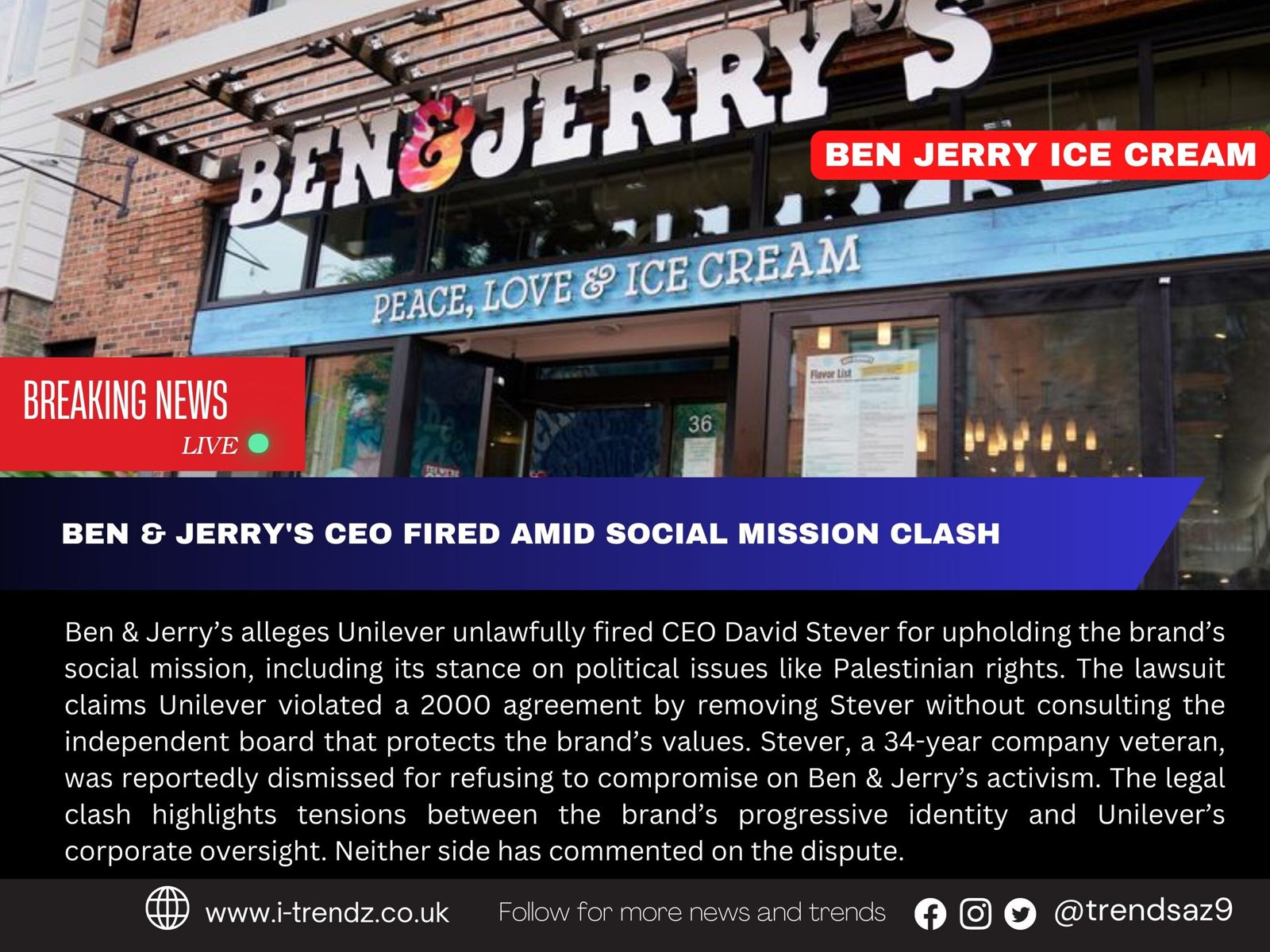Ben & Jerry’s Icecream CEO Fired Amid Social Mission Clash
Ben & Jerry’s, the socially active ice cream maker that is also famous for progressive social activism, has charged its parent company, Unilever, with unlawfully firing its CEO, David Stever. The firing, Ben & Jerry’s claims, is over clashes about the company’s commitment to its social cause and whether or not it’s willing to stand up on politically charged issues. In an amended complaint filed in the Southern District of New York on Tuesday, the Vermont-based company alleged that Unilever violated a 2000 merger agreement by ousting Stever unilaterally, without consideration of the brand’s independent board.
The 2000 contract under which Ben & Jerry’s and Unilever have their relationship governed stipulates that the CEO of Ben & Jerry’s can be removed only “after good faith consultation with, and the participation in the discussion of, an advisory committee of the Company Board.” The independent board was established to ensure that the social mission and brand character of Ben & Jerry’s are not compromised. According to the complaint, Unilever failed to observe this process when it terminated Stever, thereby breaching the terms of the agreement.
Also Read : Santander Bank Branches Closing: Larne Residents Disappointed
There has been friction between Ben & Jerry’s and Unilever, particularly over the brand being vocal on political and social issues. Ben & Jerry’s has supported causes such as migrant justice, LGBTQ+ rights, Black Lives Matter, GMO labeling, and other economic and social causes related to marginalized communities for over four decades. But Unilever has consistently tried to rein in such efforts, the complaint claims. In 2022, Ben & Jerry’s sued Unilever for blocking the company from ending sales in the West Bank, which was occupied and something that was in line with its social mission. A federal judge later denied the request, but the case brought to the forefront the longtime feud between the two companies.
David Stever, who was replaced as CEO, had spent 34 years with Ben & Jerry’s, beginning his career in 1988 as a tour guide. He then worked as the company’s chief marketing officer for 12 years before getting promoted to the CEO role, the first internal employee to achieve that position. Stever’s commitment to the social mission of the company and his collaboration with the independent board purportedly made him a target for removal by Unilever. The complaint asserts that his termination was not for performance but due to his steadfast commitment to Ben & Jerry’s values and his refusal to compromise the integrity of the brand.
The initial lawsuit, filed in November 2024, accused Unilever of “inappropriate muzzling” for keeping Ben & Jerry’s from publicly speaking out on behalf of Palestinian refugees. The suit also claimed that Unilever was intimidating Ben & Jerry’s employees if they ever publicly commented on matters the parent company would rather not have aired. On March 3, Unilever attempted to have Stever ousted and replaced as CEO, something which Ben & Jerry’s claims was because he was supportive of the company’s social cause and willing to collaborate with the independent board.
Neither Unilever nor Ben & Jerry’s has responded to requests from CBS MoneyWatch. The lawsuit also serves to underscore the challenges of preserving a brand’s mission and integrity under corporate control, particularly where that mission does not align with the interests of the parent corporation. As the case unfolds, it also asks larger questions regarding corporate responsibility, brand autonomy, and the mission of business in addressing social and political issues.


